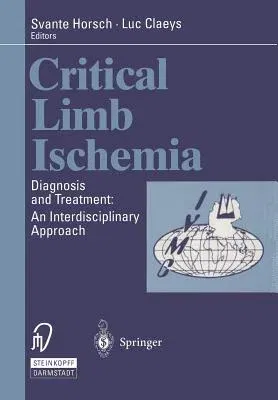Chronic critical limb ischemia remains one of the most frequent causes
of illness and hospitalization in the western world. Interest in
critical limb ischemia has increased markedly in recent years. There
have been significant achievements in diagnostic pro- cedures as well as
in the medical, invasive, and surgical treatment of patients with
critical limb ischemia. Despite a considerable research effort, the
pathophysiological mechanisms of critical limb ischemia in humans
remains to be established. Prominent is the increasing interest in the
microcirculation, as well as in the hemorheological, hemostatic and
inflammatory changes which may promote critical limb ischemia. Further
research is necessary to quantify the relevance of microcirculatory in-
vestigations in terms of predicting the prognosis or to evaluate the
effects of new therapies. Our main task is to offer the patient the best
possible therapy in order to avoid limb loss and to improve quality of
life. The various methods of treatment, their suc- cess rates, and their
complications, must be carefully evaluated and discussed. This volume
presents the complex field of diagnosis and treatment of critical limb
ischemia. The diagnosis and treatment involves different specialists
including angio- logists, interventional radiologists, vascular
surgeons, plastic surgeons, diabeto- logists, etc. Individual chapters
have been written by Belgian and German experts in the various
specialities, who present their own experience. We are very grateful
that these experts have joined us to produce this book on the
epidemiology, pathophysiology, and rational therapy.


